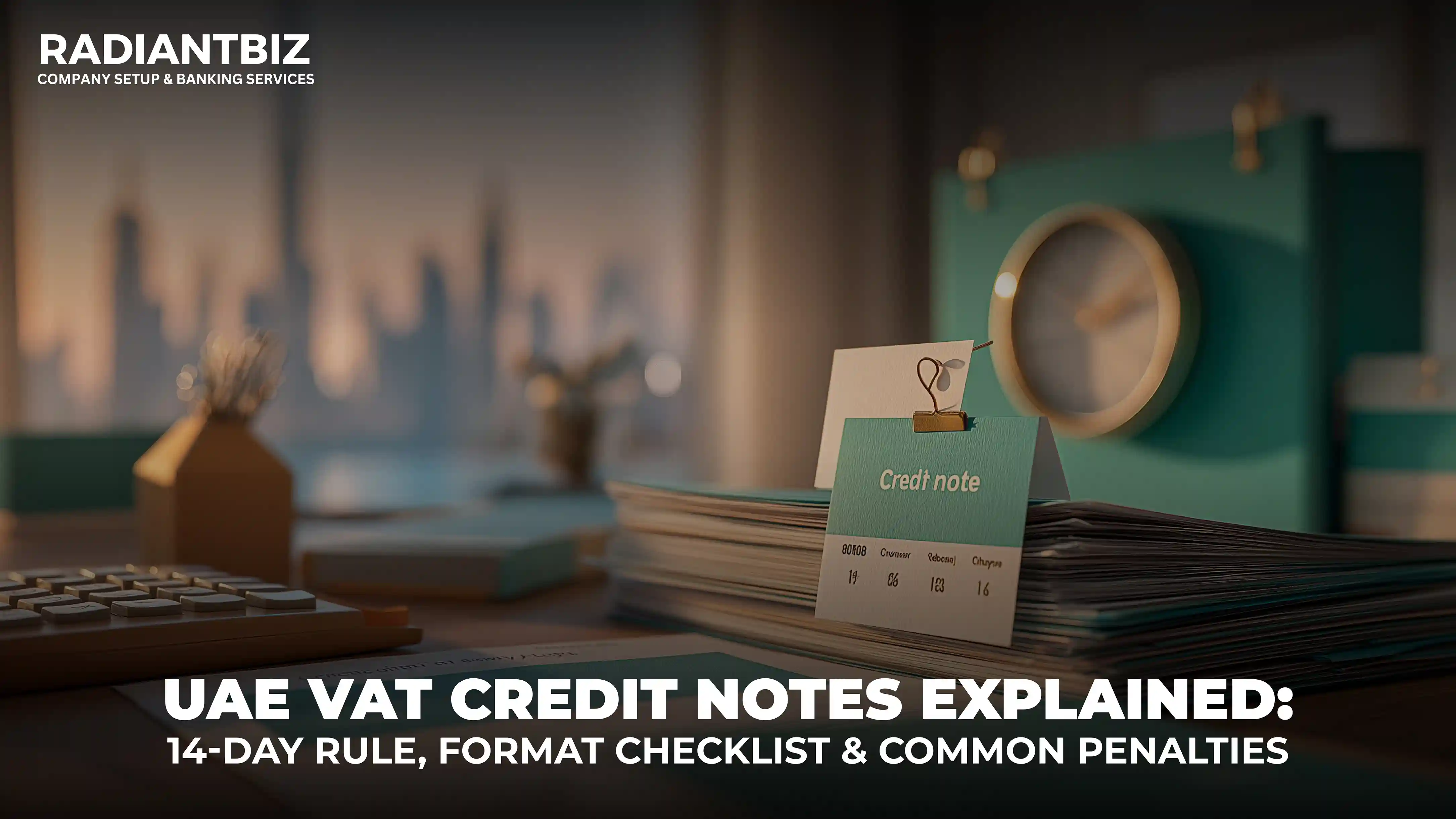How to Setup and Start an Oil Trading Business in Dubai?


Table of Contents
Dubai, known for its rich oil fields, stands as a lucrative hub for the oil and gas trading business. This industry is not only booming but also offers immense opportunities for entrepreneurs eager to tap into its potential. If you've been eyeing the oil trading sector in Dubai as a promising avenue to make a significant income, you're on the right track.Wondering how to kickstart your journey in the oil trading business in Dubai? Let us guide you through the process. With Dubai ever-expanding market, stepping into the oil trading business here could be your ticket to success. Let's dive into how you can turn this opportunity into a thriving business venture.

What is Oil Trading?
Oil trading is the buying and selling of crude oil and petroleum products to make a profit from price changes. Traders study market trends, supply and demand, and global events to make smart trades. To set up an oil trade business in Dubai, take advantage of the city's prime location, excellent infrastructure, and strong regulations. Dubai is a global hub for oil trading, offering easy access to key markets and top-notch logistics for your business.
Types of Oil Businesses in Dubai
Dubai, a global hub for trade and commerce, has long been associated with the oil industry. The city's strategic location, state-of-the-art infrastructure, and business-friendly environment make it a prime destination for various types of oil businesses. From exploration to refining and trading, Dubai offers numerous opportunities for entrepreneurs and established companies alike. Here's an in-depth look at the different types of oil businesses that thrive in this vibrant city.
1. Exploration and Production (E&P)
Exploration and Production, also known as upstream activities, are the initial stages of the oil industry. Companies involved in this sector focus on discovering oil reserves and extracting crude oil. Dubai provides an excellent base for E&P companies due to its proximity to rich oil fields in the Arabian Gulf. Key players in this sector include international oil giants and national oil companies that invest heavily in advanced technologies and skilled labour to optimize oil extraction.
2. Oil Refining
Oil refining, or downstream activities, involve processing crude oil into valuable products such as gasoline, diesel, jet fuel, and petrochemicals. Dubai's Jebel Ali Free Zone is home to some of the region's most advanced refineries. These facilities are equipped with cutting-edge technology to ensure efficient and environmentally friendly operations. The refined products are then distributed locally and internationally, meeting the demands of various markets.
3. Oil Trading
Dubai's strategic location and robust infrastructure make it a global hub for oil trading. The Dubai Mercantile Exchange (DME) plays a pivotal role in this sector, providing a platform for trading crude oil futures. Oil trading companies in Dubai benefit from the city's extensive logistics network, including world-class ports and airports, which facilitate the swift movement of oil products. Additionally, Dubai's business-friendly regulations and tax incentives attract numerous trading firms from around the world.
4. Oilfield Services
Oilfield services companies provide essential support to E&P operations. These services include drilling, well completion, geological surveys, and equipment maintenance. Dubai hosts a range of specialized oilfield services providers that offer innovative solutions to enhance the efficiency and safety of oil extraction processes. The city's emphasis on technological advancement and skilled workforce development ensures that these companies remain competitive on a global scale.
5. Petrochemicals
The petrochemical industry in Dubai is a significant segment of the oil business, focusing on converting crude oil and natural gas into chemical products used in various industries. These products include plastics, fertilizers, and synthetic fibers. Dubai's petrochemical sector benefits from its integration with the oil refining industry, ensuring a steady supply of raw materials. The city’s strategic location also provides easy access to international markets, making it an attractive destination for petrochemical companies.
6. Storage and Distribution
Efficient storage and distribution are crucial aspects of the oil business. Dubai's state-of-the-art storage facilities and extensive distribution networks ensure the smooth flow of oil products within the region and beyond. The Emirate's strategic ports, such as Jebel Ali Port, offer significant storage capacities and advanced handling facilities, making Dubai a key logistics hub for the global oil industry.
7. Renewable Energy Integration
While traditionally known for its oil industry, Dubai is also investing heavily in renewable energy. The city aims to diversify its energy mix and reduce its reliance on fossil fuels. This transition presents opportunities for oil companies to invest in and develop renewable energy projects, integrating them with traditional oil business operations. Initiatives like the Dubai Clean Energy Strategy 2050 highlight the Emirate's commitment to sustainable energy practices.
Types of Oil used for Trading in Dubai
Dubai, a global nexus for commerce and trade, offers a wealth of opportunities for entrepreneurs looking to establish oil trading companies. The city’s strategic location, coupled with its sophisticated infrastructure and business-friendly environment, makes it an ideal hub for trading various types of oil. Whether you are an established player or a newcomer to the industry, understanding the different types of oil that can be traded is crucial for success. Here’s a comprehensive guide to the types of oil you can trade in Dubai.
1. Crude Oil
Crude oil is the unrefined petroleum extracted directly from the ground. It is the raw material that is processed into various petroleum products. There are several grades of crude oil, each with different characteristics and uses:
- Brent Crude: This is one of the most traded types of crude oil globally. It is extracted from the North Sea and is a major benchmark for oil prices worldwide.
- West Texas Intermediate (WTI): Another key benchmark, WTI is primarily extracted in the United States and is known for its high quality and low sulfur content.
- Dubai Crude: Specifically produced in the Emirate, this type of crude oil is often used as a pricing benchmark for oil exported to Asia
2. Refined Petroleum Products
Once crude oil is processed in refineries, it is converted into various refined products. These products have diverse applications and are in high demand globally. Key refined petroleum products include:
- Gasoline (Petrol): Used primarily as fuel for vehicles, gasoline is one of the most widely traded refined products.
- Diesel: Another crucial fuel type, diesel is used in transportation, agriculture, and various industrial applications.
- Jet Fuel: Essential for the aviation industry, jet fuel is a significant component of the global oil trade.
- Kerosene: Used for heating, lighting, and as a fuel for jet engines, kerosene has various applications.
3. Liquefied Petroleum Gas (LPG)
Liquefied Petroleum Gas (LPG) consists of propane and butane, which are extracted during the refining of crude oil or the processing of natural gas. LPG is commonly used for heating, cooking, and as a fuel for certain vehicles. Its versatility and clean-burning properties make it a popular product for trade.
4. Natural Gas Liquids (NGLs)
Natural Gas Liquids (NGLs) are a group of hydrocarbons that are extracted from natural gas and include ethane, propane, butane, and pentanes. NGLs are used in a variety of applications, such as feedstock for petrochemical plants, heating, and fuel.
5. Fuel Oil
Fuel oil is a heavy fraction obtained from crude oil during the refining process. It is primarily used for powering ships, industrial plants, and power stations. Fuel oil is classified into different grades based on its viscosity and sulfur content, with each grade having specific uses and market demands.
6. Lubricants
Lubricants are specialized products derived from refined petroleum that are used to reduce friction between surfaces in mutual contact, which ultimately reduces the heat generated. They are essential for the smooth operation of machinery and engines in various industries, including automotive, manufacturing, and marine.
7. Petrochemicals
Petrochemicals are chemical products derived from petroleum and natural gas. They are used as raw materials in the manufacture of a wide range of products, including plastics, synthetic rubber, and fertilizers. Key petrochemicals include:
- Ethylene: Used in the production of polyethylene, the most common plastic.
- Propylene: Used to make polypropylene, another widely used plastic.
- Benzene: Used in the manufacture of various chemicals and plastic
Benefits of Starting an Oil Trading Business in Dubai
Trading in oil, also known as "black gold," is widely recognized for its financial benefits. But, did you know there are even more advantages to running an oil trading business in Dubai?Firstly, the United Arab Emirates (UAE) is among the top 10 oil-producing countries, offering significant benefits:
- High-Profit Potential: Compared to many other industries, the oil sector in the UAE provides a superior opportunity for earning substantial profits.
- Favorable Tax Rates: The UAE low rates for income, corporate, and customs taxes are incredibly advantageous for businesses.
- Global Trading Ease: It’s straightforward to engage in international trade from Dubai. Access to UAE Oil Reserves: Businesses can directly involve themselves in activities with the UAE oil reserves.
- Networking Opportunities: Dubai is a hub for connecting with some of the most influential oil markets worldwide.
- Capital and Profit Repatriation: The UAE allows businesses to repatriate 100% of their capital and profits back to their home country.
- No Currency Restrictions: There are no limitations on currency exchange set by the Dubai government.
- Strategic Location: The UAE prime geographical position bridges the time zones of major international markets and supports efficient transportation.
- Streamlined Business Setup: The process for company formation in Dubai is both fast and cost-effective.
- Government Support: Businesses in Dubai receive extensive support from the local government. These points highlight the compelling reasons to start an oil trading business in Dubai. If you're ready to dive into this opportunity, we've prepared some straightforward steps to guide you through the process.
While these steps are designed to be simple, if you encounter any difficulties, assistance is at hand. Business setup consultants in Dubai, like RadiantBiz, are available to help you navigate the process, allowing you to focus on other aspects of your business.
Also Read :Trade License In Dubai

How to Start an Oil Trading Business in Dubai?
Read and follow our detailed guide on how to start an oil trading business in Dubai step by step. You could become the owner of your own oil trading company sooner than you think!
Step 1: Understand the Oil Market
As with any industry, you need a basic knowledge of how it works before jumping in. Understanding how the oil market works can help your oil trading business in Dubai flourish quickly. For this, you need to gain important knowledge about oil futures and other options. The most popular way to trade and obtain oil in the United Arab Emirates is through contracts. Oil futures are an agreement between two parties to exchange a certain amount of oil at a certain price on a certain date. This method is one of the methods frequently used by oil traders in Dubai. Oil options are similar to oil futures, but there is one major difference. You can purchase a certain amount of oil at a certain price before a set date. Besides, whether you trade or not is entirely up to you.
Step 2: Decide on a Trading Method
The next step is to decide which trading method you will implement for your oil business. There are many different ways to trade oil, so choosing the right trading strategy is important for the success of your business.
Step 3: Choose a location
Dubai offers the option to set up a business in its free zones, on the mainland, or abroad. There are currently more than 20 active free zones in Dubai. However, both of these locations have pros and cons, so you should consider all options before deciding on a location for your oil company.
Step 4: Business Plan
A business plan is an essential and unavoidable part of starting any new business. You will need to prepare a detailed business plan for the oil trading business you wish to establish in Dubai. Your business plan should include how many employees you have, what products you want to sell, your market, your competitors, and how much you want to invest.
Step 5: Choose a business name
Choose a suitable name for your business and establish it with the relevant legal department. When choosing a business name in Dubai, you must follow certain rules.
Step 6: Complete the license application process
You will need to choose between a commercial license or a general trade license for your company. After deciding on a license, attach all required documents to obtain a trade license.
Step 7: Get additional approvals
The first approval you need to start an oil company in Dubai is your business license. But that alone isn't enough. Depending on your type of business activity, you may need to obtain additional approvals from the Supreme Petroleum Council (SPC). This is an important step to keep your business running smoothly, so proceed carefully.
Step 8: Open a business bank account
Lastly, you will need a business bank account to transact in the UAE. After completing all legal formalities, you need to open a business bank account to facilitate financial transactions. This account will play an important role in managing all your company's financial transactions. Following these steps will help you understand and prepare for the key steps required to start an oil trading business in Dubai. Thorough preparation and accurate execution of procedures are the foundation for business success. Starting your oil trading company in Dubai can be straightforward if you have the necessary knowledge, a comprehensive business plan, and the correct paperwork.
Documents Required to Start an Oil Trading Business in Dubai
To start an oil trading business in Dubai, you will need to submit some important documents. Here are the basic documents required:
- Passport copies: Make sure you have copies of the passports of everyone involved in the business (shareholders, directors, partners, etc.).
- Passport size photo: Include a recent passport size photo of every individual associated with your business.
- Copy of entry visa or stamp page: Submit a copy of the entry visa or stamp page for each person involved in the business.
Take the first step towards starting an oil trading business in Dubai by preparing the above documents.
Cost of Starting a Oil Trading Business in Dubai
The cost of setting up an oil trading company in Dubai depends on several factors, including the size of the company, the activities to be carried out, visa requirements, formation costs, etc. Fortunately, the economic department does not impose heavy activity fees, so the costs are not excessively high. This makes it a profitable business. Typically, the cost is similar to that of a commercial license in Dubai, which is around 30,000 AED. The cost of starting a oil trading business in Dubai ranges from 20,000 AED to 30,000 AED. However, this amount does not include additional costs such as certificates issued by other government agencies, rent, employee visas, etc. A deposit may be required when obtaining a license. If you want an accurate breakdown of how much it will cost to start a fuel trading company in Dubai, our team can provide you with a quote tailored to your needs and a list of all costs.
How to Market Oil Trading Business in Dubai?
Marketing strategy is key to success in a highly competitive fuel trading business like Dubai. Here are some strategies that will help you effectively promote your fuel trading business:
- Leverage your industry network: Building strong relationships in the energy sector is important. Attend industry events, join trade associations, and take advantage of networking opportunities. These connections can bring valuable insights into partnerships, recommendations, and market trends.
- Build your digital marketing and online presence: Develop a professional website that highlights your services, expertise, and market knowledge. Additionally, utilize social media platforms to connect with your target audience and share industry news, insights, and company updates.
- Targeted Advertising: Reach potential customers using targeted advertising such as industry-specific publications, online platforms, and social media channels.
- Provide competitive intelligence: Provide competitive intelligence to your customers so they can make informed decisions. This may include information on pricing trends, supply chain developments, and geopolitical factors affecting fuel markets. By providing these valuable services, you position your business as a trusted resource in your industry.
Start Your Oil Trading Business in Dubai With RadiantBiz
Feeling a bit lost or unsure about how to proceed? Don't worry, RadiantBiz is here to assist you with your business setup in Dubai. You can relax and have confidence in us as we guide you through the process, helping your business come to life.
FAQ : Start Oil Trading Business in Dubai
Is oil business profitable in Dubai?
There is a big demand for oil and other petroleum products worldwide. Starting an oil trading company in Dubai can be very profitable.
How to become an oil trader?
To start a career in oil trading, you need a strong education in finance, economics, or business. A bachelor's degree in one of these areas gives you a good understanding of financial markets, risk management, and trading strategies.
How to start an oil trading company?
- Research the Market: Learn about the oil market and understand how it works.
- Find a Niche: Choose a specific area of oil trading to focus on.
- Get Funding: Secure the money you need to start your business.
- Get the Right Licenses and Permits: Obtain the necessary licenses and permits.
- Create a Business Plan: Write down your business goals and strategies.
- Find Suppliers: Connect with suppliers who can provide you with oil.
- Develop a Marketing Plan: Plan how you will market and promote your business.
- Start Trading Oil: Begin your oil trading operations.
How to sell oil in Dubai?
- Understand the Oil Market: Learn about the oil industry and market trends.
- Decide the Way of Trading: Choose how you will trade oil (physical trading or futures).
- Select a Location: Pick the best place in Dubai for your business.
- Business Plan: Write down your business goals and strategies.
- Select Business Name: Choose a name for your company.
- Complete License Application Process: Apply for the necessary business license.
- Get Additional Approvals: Obtain any extra permits or approvals needed.
- Open a Corporate Bank Account: Set up a business bank account.



2.png)




.avif)